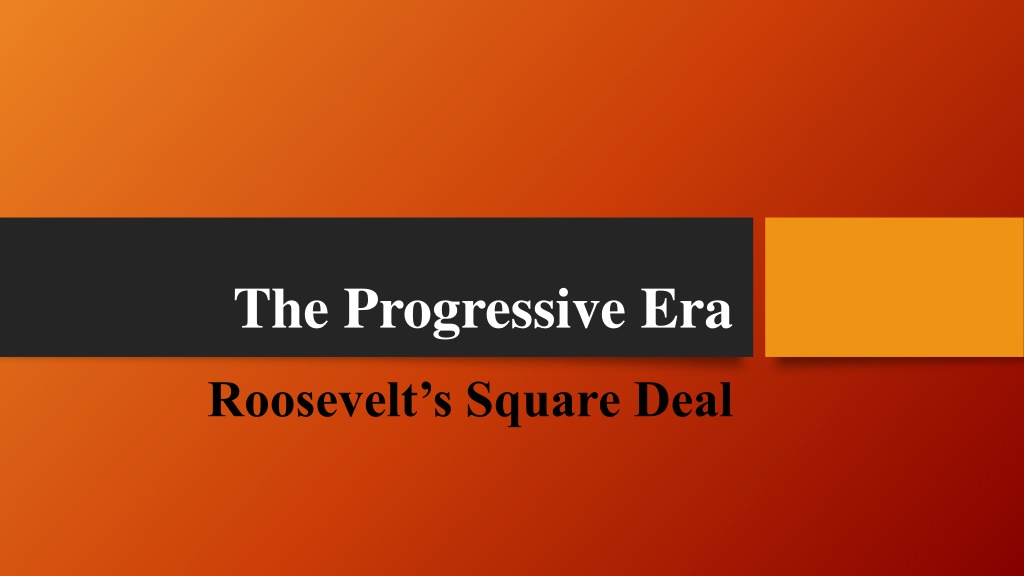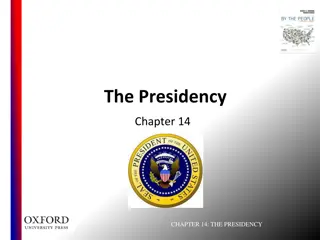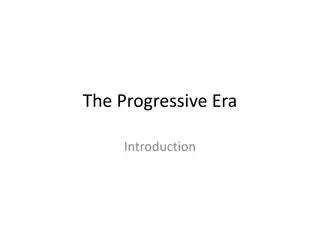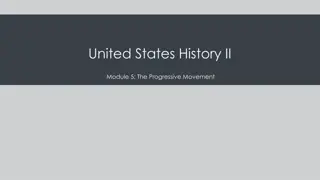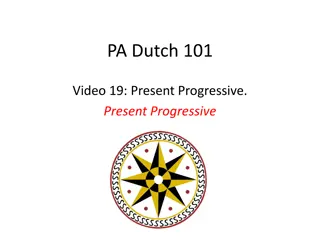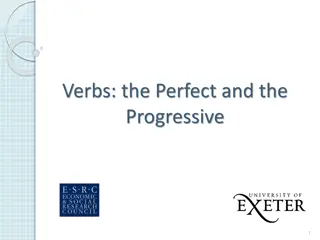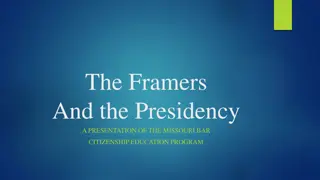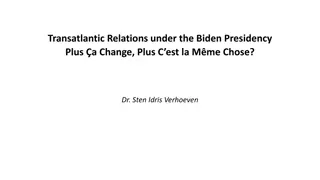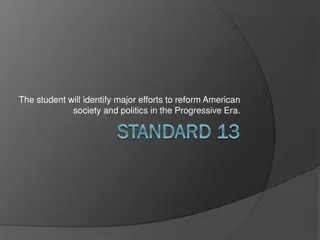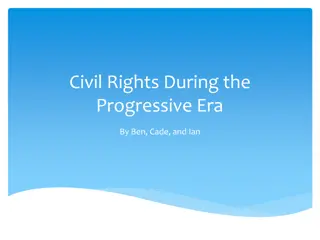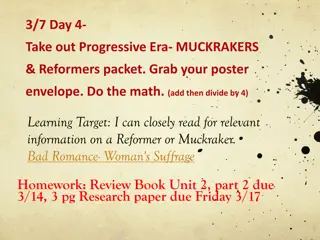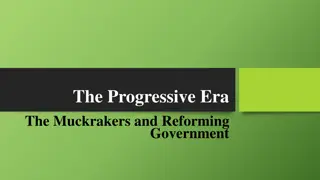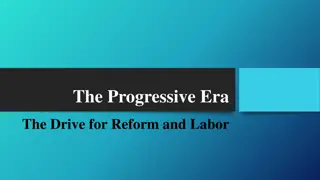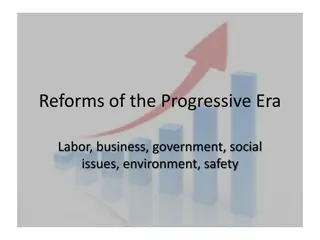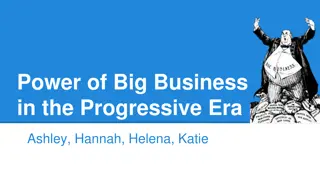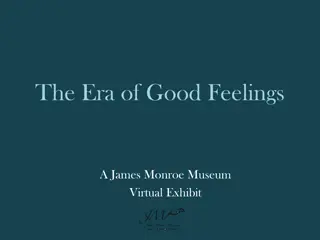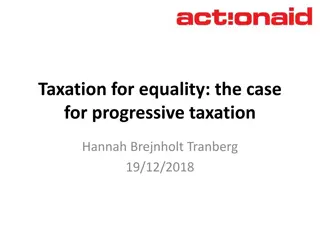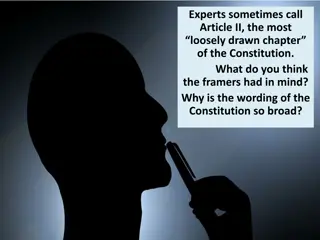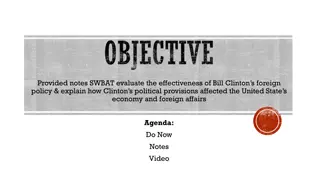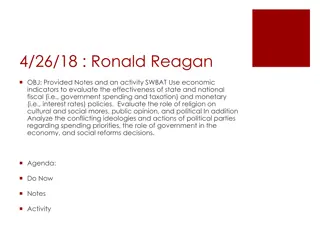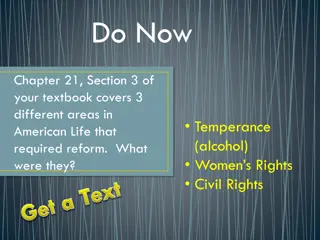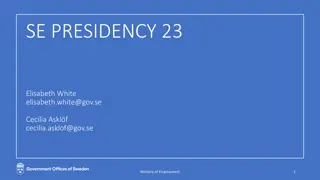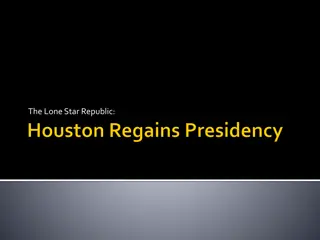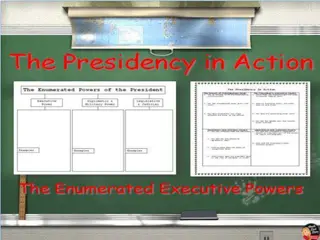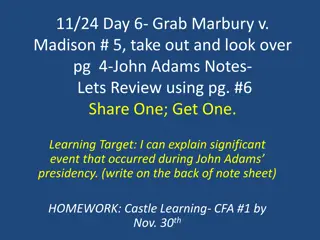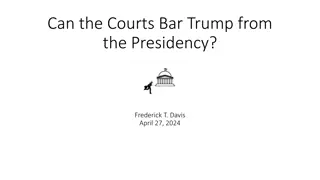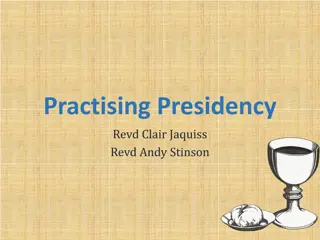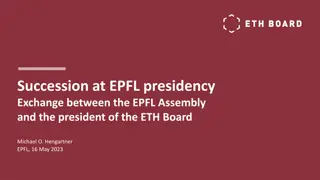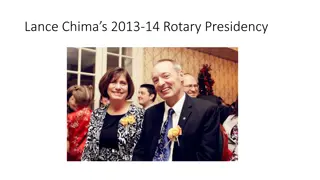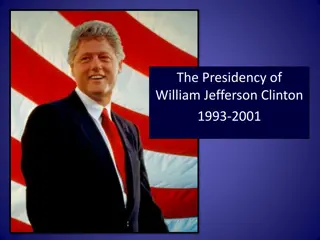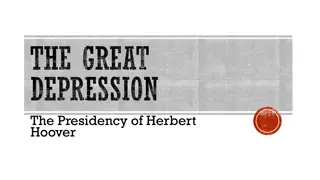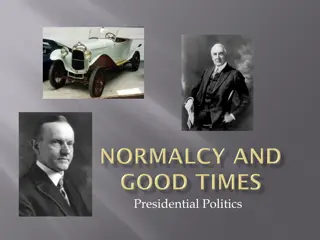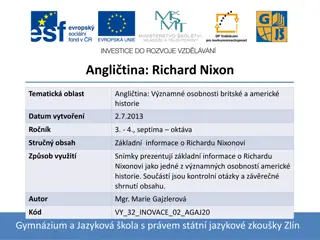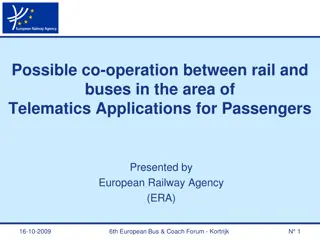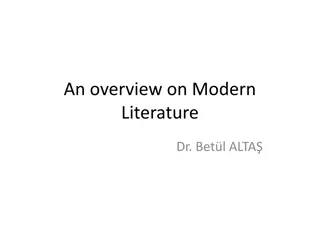The Progressive Era: Roosevelt's Impact on the Modern Presidency
Theodore Roosevelt's presidency marked a significant shift towards Progressive ideals, shaping the way Americans viewed the government. From his early life to his Square Deal reform program, Roosevelt's dynamic leadership and dedication to fighting corruption left a lasting impact on American politics and governance.
Download Presentation

Please find below an Image/Link to download the presentation.
The content on the website is provided AS IS for your information and personal use only. It may not be sold, licensed, or shared on other websites without obtaining consent from the author. Download presentation by click this link. If you encounter any issues during the download, it is possible that the publisher has removed the file from their server.
E N D
Presentation Transcript
The Progressive Era Roosevelt s Square Deal
Roosevelt Shapes the Modern Presidency The presidents of the late 1800s seen as weak and ineffective The arrival of Theodore Roosevelt ushered in a new era Roosevelt a charismatic individual who embraced Progressive ideals Changed the way Americans viewed the President and the government
Roosevelt Shapes the Modern Presidency Roosevelt became the youngest president at 43 when William McKinley was assassinated The child of wealthy parents, Roosevelt used his parents money to develop his strength and mind Roosevelt graduated from Harvard in 1880 and was elected to the New York Assembly
Roosevelt Shapes the Modern Presidency After 3 years and the deaths of his mother and wife, Roosevelt retired to a ranch in the west where he developed a deep love of the wilderness Returned to politics in 1889 as the president of New York City s Board of Police where he became famous fighting corruption
Roosevelt Shapes the Modern Presidency President McKinley noticed him and named him Assistant Secretary of the Navy When the Spanish-American war broke out in 1898, Roosevelt resigned the post and formed the Rough Riders After the war, he was elected governor of New York where he pushed for Progressive reforms
Roosevelt Shapes the Modern Presidency To leave New York, and them, alone Republican leaders convinced McKinley to choose Roosevelt as his Vice President After McKinley's assassination, Roosevelt dominated public attention Roosevelt greatly expanded the power of the President
Roosevelts Square Deal Roosevelt s reform program was called the Square Deal (goals were to keep the wealthy and powerful from taking advantage of small business owners and the poor) Believed that government should be fair, but did not believe everyone would get rich or that the government should take care of the lazy
Trustbusting and Regulating Industry Roosevelt often stepped in to industrial disputes In 1902 he threatened to use federal workers to mine coal if mine owners and workers couldn t come to an agreement Mine owners eventually gave miners a small pay raise and a 9-hour workday
Trustbusting and Regulating Industry Coal strike was one of many steps Roosevelt took to control power of corporations By 1903, he asked Congress to establish the Department of Commerce and Labor to monitor businesses engaged in interstate commerce
Roosevelt and the Railroads Cost of shipping on the railroad a concern since the 1870s Railroads able to charge whatever they wanted In 1887 Congress created the ICC to oversee rail charges for shipments that passed through more than one state In 1903 Roosevelt pushed Congress to pass the Elkins Act which imposed fines on railroads that gave special rates to favored shippers
Roosevelt and the Railroads In 1906 Congress passed the Hepburn Act (gave the ICC stronger enforcement powers) Gave the government the authority to set and limit shipping costs Set maximum prices for ferries, bridge tolls, and oil pipelines
Roosevelt and the Sherman Antitrust Act Roosevelt and his administration earned a reputation as trustbusters In 1904 the Supreme Court ruled the Northern Securities Company was an illegal trust and forced the company to split into smaller companies
Roosevelt and the Sherman Antitrust Act Roosevelt saw a difference between good trusts and bad trusts He believed big business was bad only if it bullied smaller outfits or cheated consumers Roosevelt supported powerful corporations who did business fairly
Regulating Food and Drugs Upton Sinclair s The Jungle revolted the public and infuriated Roosevelt Roosevelt urged Congress to pass the Meat Inspection Act in 1906 Provided federal agents to inspect any meat sold across state lines and required federal inspection of meat processing plants
Regulating Food and Drugs The Pure Food and Drug Act Placed the same controls on other foods and medicines Banned interstate shipment of impure food and mislabeling of food and drugs
Roosevelt and the Environment Roosevelt s deep love of nature helped shape his politics Roosevelt believed that the land should be preserved, but not all lands (some held natural resources that were needed) He called up experts to study both preserving and using nature
Roosevelt and the Environment Roosevelt believed forests should be protected to give the trees time to grow, and then used to build houses Roosevelt pushed Congress to pass the National Reclamation Act Gave federal government power to build and manage dams to create reservoirs and decide where and how water would be distributed Gave government ability to generate power with water
